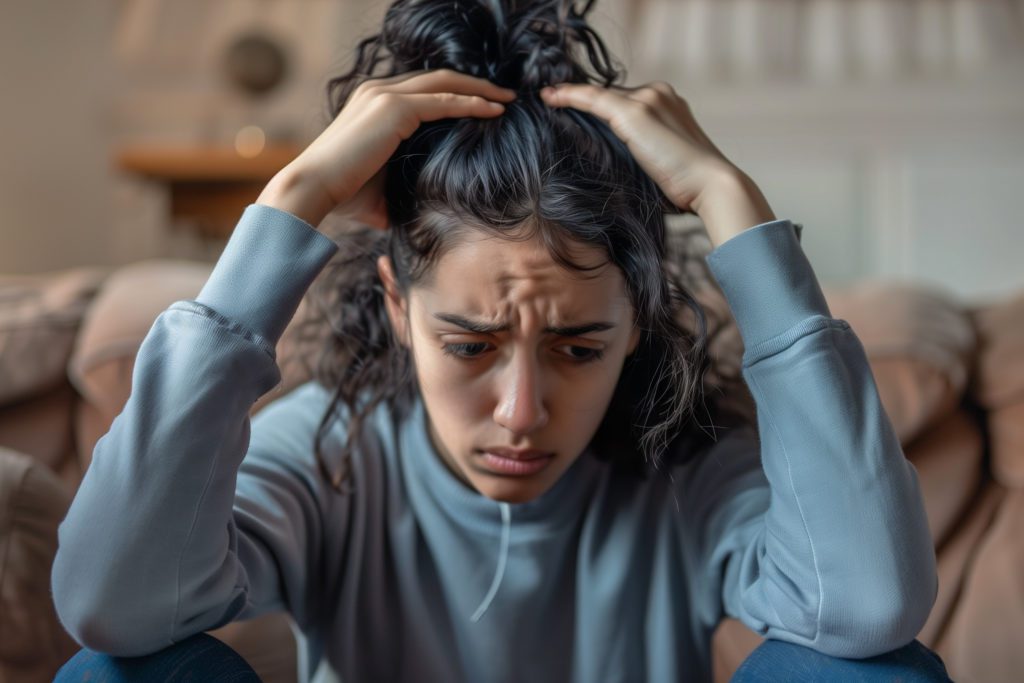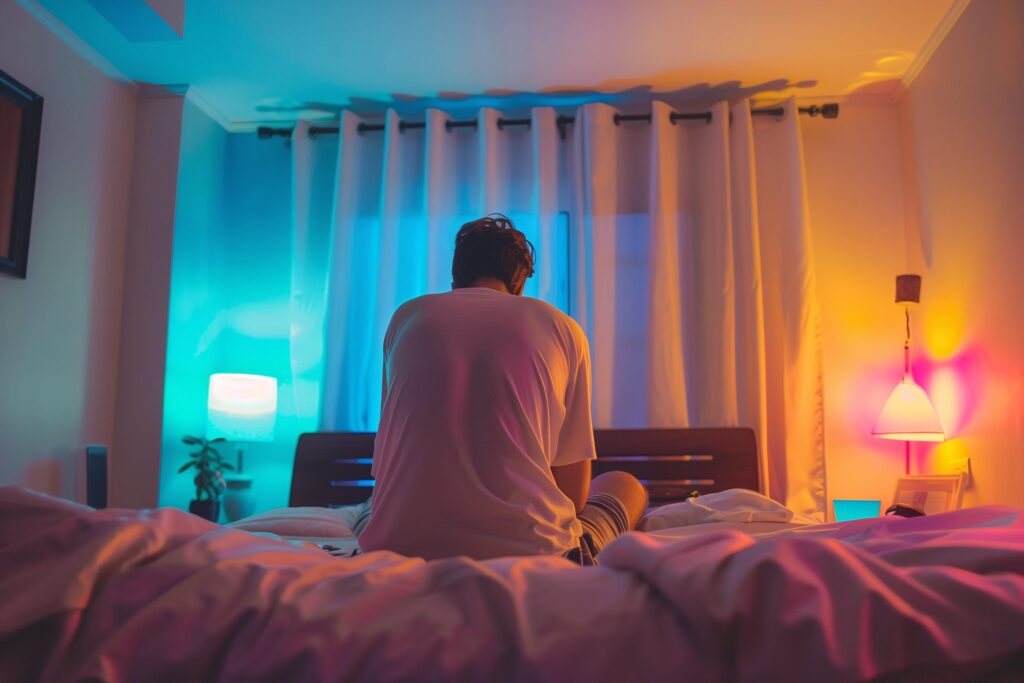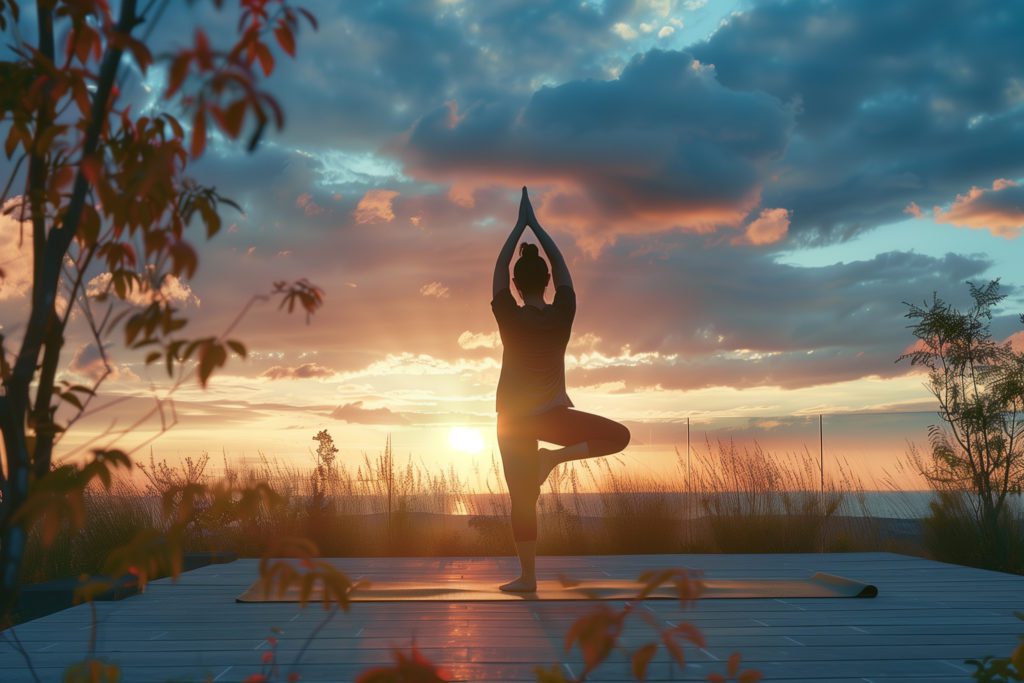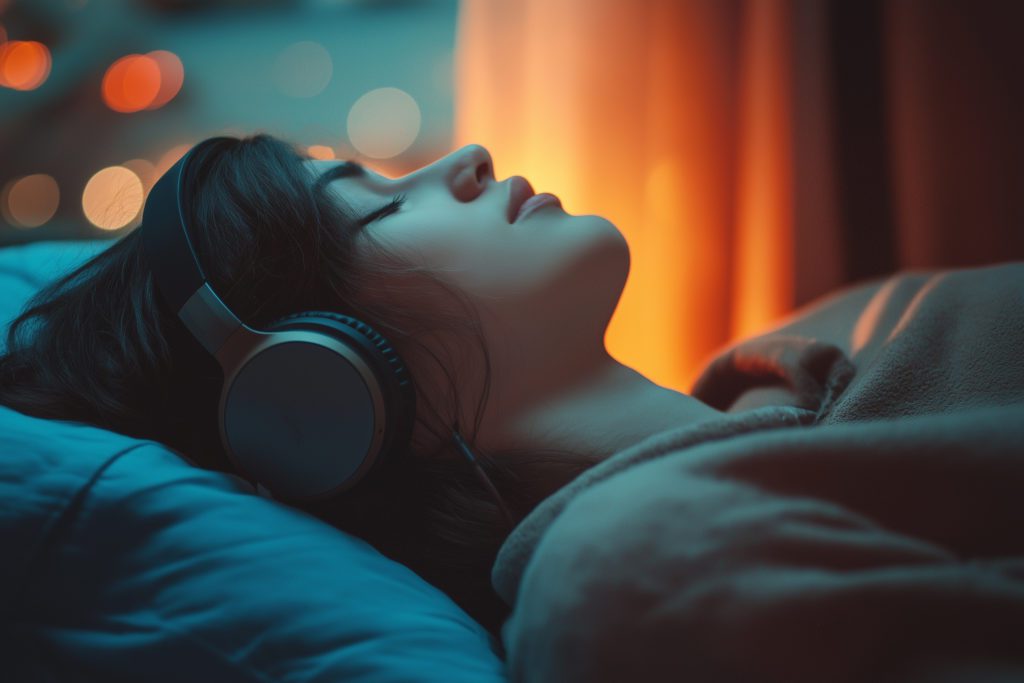
Anxiety and Sleep: Effects and Tips to Sleep Better
It’s a vicious cycle—anxiety and stress can make it difficult to fall asleep (and stay asleep), which makes it difficult to get enough quality rest. Lack of sleep can worsen anxiety, and the cycle can continue indefinitely.

Anxiety and sleep deprivation can have far-reaching mental and physical consequences. So, it’s important to understand the link between anxiety and sleep, as well as how to get better sleep if you do experience anxiety.
What is Anxiety?
Anxiety is a feeling of unease, worry, nervousness, or fear. It can range from mild to severe, and it’s normal to feel anxiety when you encounter a stressful or high-pressure situation. Everyone experiences some degree of anxiety throughout their lives, although it’s typically not chronic or disruptive to normal life.
However, with an anxiety disorder, the feelings of fear and worry become pervasive. Often the intensity of anxiety is disproportionate to the situation at hand, and the feelings tend to linger for six months or more. Anxiety disorders can interfere with all aspects of life, including work, school, personal activities, and sleep.
The cause of anxiety isn’t known, nor is it known why some people suffer from anxiety disorders while others do not. Researchers posit that many factors are likely in play, including genetics, health problems, substance usage, family history, and exposure to traumatic or stressful events.
Symptoms of Anxiety
Beyond causing feelings of nervousness and fear, anxiety can manifest in many different ways, including:
• Sweating or hot flashes
• Chills
• Rapid breathing or feeling short of breath
• Feelings of being choked or smothered
• Racing and/or pounding heartbeat (palpitations)
• Chest pain
• Dizziness or lightheadedness
• Trembling or shaking
• Gastrointestinal issues
• Nausea
• Poor concentration
• Mood changes
• Irritability
• Restlessness
• Feelings of overwhelm and/or loss of control
• Fatigue
• Muscle tension
• Difficulty sleeping
• Feelings of detachment
Types of Anxiety Disorders
There are several different types of general and specific anxiety disorders, such as:
Generalized Anxiety Disorder (GAD)
Those with GAD often worry about many different things simultaneously, which leads to an all-encompassing sense of worry.
Obsessive-Compulsive Disorder (OCD)
Sufferers of OCD obsess about specific issues, which leads to anxiety and ritual compulsions which are their attempts to alleviate the anxiety. For example, someone might obsess over germs and the possibility of getting sick, and develop a compulsion to wash their hands dozens of times per day.
Panic Disorder
People with Panic Disorder experience panic attacks, which are extremely intense periods of anxiety that typically last for several minutes.
Post-Traumatic Stress Disorder (PTSD)
PTSD can affect people who have been through stressful, painful, or disturbing situations, such as abuse, traumatic injuries, or war. Sufferers may relive the event over and over, feel constantly on high-alert, and/or be triggered into a highly anxious state by everyday things like getting into a car or hearing fireworks go off.
Specific Phobias
Phobias are anxiety responses to specific things or situations, such as claustrophobia (fear of tight spaces) or arachnophobia (fear of spiders).
Not all anxiety falls into neat categories, however—sometimes people can have multiple types of anxiety, and often anxiety goes hand in hand with other mental health issues. In fact, almost 50% of people who have depression have also been diagnosed with an anxiety disorder.
Relationship Between Anxiety and Sleep
Anxiety often rears its head at night when people are laying in bed. While waiting to fall asleep, the mind is not otherwise occupied which means that anxious thoughts and worries can creep in. This leads to a state of hyperarousal, which naturally makes it even more difficult to fall asleep—making anxiety a leading cause of insomnia.
Additionally, those with anxiety disorders often have high sleep reactivity, which means that for them, stress causes acute difficulty with falling asleep as well as staying asleep throughout the night. Sufferers might also experience anxiety in anticipation of not being able to fall asleep and getting less sleep than they need, which of course only compounds the problem.
Anxiety can also make it much more difficult to fall asleep again after waking in the night, and research has shown that it can negatively impact sleep cycles as well as cause disturbing dreams and nightmares.
The bottom line is that the relationship between sleep and anxiety is cyclical. Anxiety can cause poor sleep, which causes even more anxiety and in turn, even more trouble sleeping.
Tips to Manage Anxiety and Get Better Sleep
Fortunately, anxiety is one of the most treatable mental health concerns and there are several steps you can take to manage it and get better sleep, such as:
Build a Healthy Sleep Routine
Creating a sleep routine that you follow each night can not only help you relax and wind down, but it can also train your brain to know when it’s time to go to sleep. This helps alleviate anxiety and ease insomnia.
There are a few key components to a healthy sleep routine:
Keep to a consistent schedule
Try to wake up and go to sleep at the same time each day. This helps regulate your circadian rhythm so you will feel tired and fall asleep more easily and wake refreshed in the morning. In the same vein, try to start your sleep routine at the same time every evening.
Limit light and electronics use in the evenings
Exposing yourself to bright lights (and particularly the blue light that’s emitted by screens) in the evening can hinder your body’s melatonin production. Melatonin is a hormone that helps you feel tired and fall asleep, so taking steps to maximize melatonin production can be very helpful.
Be mindful of what you eat and drink
Eating a heavy meal before bed can cause heartburn or stomach discomfort and make it more difficult to fall asleep. Conversely, going to bed hungry can also make it hard to relax and drift off. Drinking caffeine and/or alcohol before bed can negatively impact your quality and quantity of sleep.
Select some relaxing bedtime activities
Incorporate things like taking a warm bath, listening to music or soothing audio, reading a calming book, or journaling into your sleep routine. You may also wish to try yoga, stretching, meditation, or breathwork to minimize anxiety.
Optimize Your Sleep Environment
Ensure that your bedroom is optimized for restful sleep. Keep the room clean and free of clutter, and use blackout curtains or blinds to block out light. Turn your thermostat down to between 60-70 degrees Fahrenheit and use fans or air conditioning to keep cool in the summer. Turn off or silence any devices that might make noise before getting into bed. If outside noise keeps you awake, use earplugs, headphones, or a white noise machine to drown it out. Finally, ensure that your mattress is comfortable and your bedding is fresh and clean.
Try Therapy
Cognitive behavioral therapy can be a powerful tool in reducing anxiety and insomnia. It’s a type of talk therapy that helps combat negative thinking, which can alleviate nighttime worrying and rumination about stressors.
Talk to Your Doctor About Medication
There are also several different types of medication that can be used effectively to treat anxiety and help achieve restful sleep, including antidepressants, anti-anxiety medication, and beta-blockers. While these medications treat the symptoms of anxiety rather than cure the anxiety itself, they can allow people to get better sleep which may help actually combat the anxiety. Always consult your physician before beginning any new medications.
FAQ
Why do anxious thoughts seem louder when I’m lying in bed?
When you’re still and not occupied, your mind has space to wander, making anxious thoughts feel more overwhelming in the quiet of the night.
Does procrastination during the day lead to nighttime anxiety?
Yes, putting off tasks can leave you feeling overwhelmed at night when you’re thinking about everything left undone, creating unnecessary stress.
Can I train my brain to stop overthinking at night?
Yes, you can use techniques like thought reframing, guided meditations, or journaling to redirect your focus and calm an overactive mind.
Why do I sometimes wake up anxious without any clear reason?
Nighttime anxiety can be triggered by subconscious worries, hormonal changes, or even a poor diet, such as eating too much sugar before bed.
Can naps help make up for sleep lost to anxiety?
Short naps (20–30 minutes) can boost energy, but long naps may disrupt your nighttime sleep and worsen anxiety-related insomnia.
Can a weighted blanket really help with anxiety-related sleep problems?
Yes, weighted blankets provide gentle pressure that mimics a comforting hug, helping to reduce stress and promote relaxation for better sleep.
References
- Anxiety Disorders
https://www.nimh.nih.gov/health/topics/anxiety-disorders - What are Anxiety Disorders?
https://www.psychiatry.org/patients-families/anxiety-disorders/what-are-anxiety-disorders - Eric Suni, Alex Dimitriu - Anxiety and Sleep
https://www.sleepfoundation.org/mental-health/anxiety-and-sleep - Melatonin: What You Need To Know
https://www.nccih.nih.gov/health/melatonin-what-you-need-to-know

Written by
Cat Caroll
Articulate Writer and Analytical Editor
Download Pillow
Get help
Press & News
Legal
Connect
X (Twitter)
Company
Copyright © Neybox Digital Ltd.



